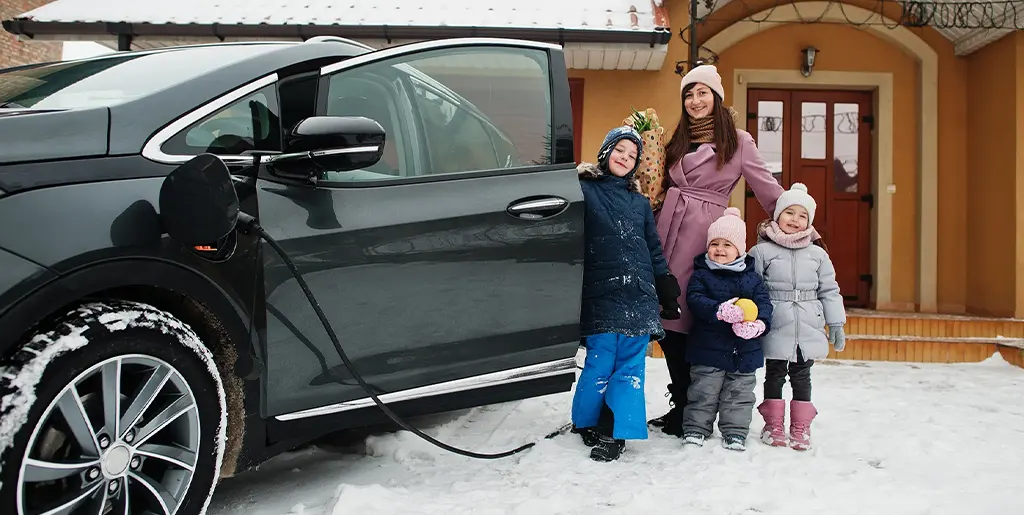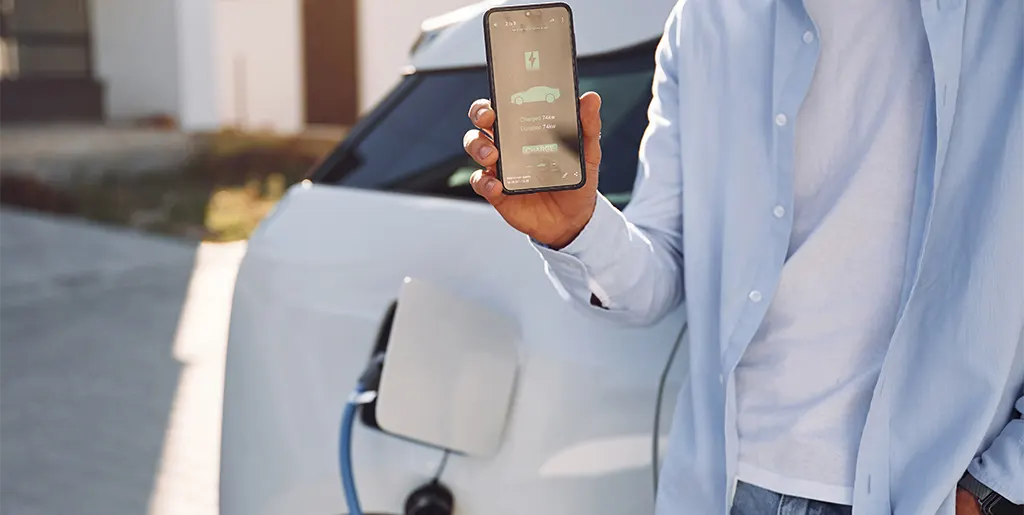
A Guide to Staying Safe with Electrical Services
October 14, 2024
How Much Can I Reduce My Bills With Solar Panel Savings?
November 29, 2024
A Guide to Staying Safe with Electrical Services
October 14, 2024
How Much Can I Reduce My Bills With Solar Panel Savings?
November 29, 2024How to Choose a Home EV Charger


As electric vehicles (EVs) become more common, finding the right home EV charger is essential for convenient charging at home. With the growing variety of EV chargers available, choosing the best option can be a little overwhelming. This guide will walk you through everything you need to consider—from types of chargers and installation options to local factors in Kelowna and British Columbia—so you can confidently select the ideal EV charging station for your home.
1. Understanding Home EV Charger Types
When choosing an EV charger, it’s crucial to understand the differences between charger levels. In North America, the two primary options for charging at home are Level 1 and Level 2 chargers.
Level 1 Chargers
Level 1 chargers plug into a standard household outlet (120 volts) and typically offer a charging speed of about 3 to 5 miles per hour of charging. This is the slowest option, making it better suited for plug-in hybrids or for EV owners who drive short distances .
Level 2 Chargers
For faster charging, a Level 2 charging station is ideal. These chargers require a 240-volt wall mount and can deliver 12 to 60 miles of range per hour. A Level 2 charger is much more efficient for electric vehicle owners who drive regularly and need a fully charged car each day.
Pro Tip: Many EV owners in Kelowna prefer Level 2 chargers for their daily use, as they offer a significant improvement in charging time, especially helpful in winter when EV batteries can take longer to charge.

2. Factors to Consider When Choosing a Home EV Charger
When selecting the right charger, there are several factors to consider beyond charging levels. Here are some essential points to guide your decision:
Charging Speed: Each charger has a different maximum output. If you need your electric vehicle ready in a short period, look for higher-output chargers. Most Level 2 chargers offer between 16-50 amps, with 40 amps being a standard, reliable choice.
Compatibility: Ensure the charger you choose is compatible with your EV. While most electric vehicle chargers are universally compatible, some may work best with specific brands. Double-check to avoid compatibility issues.
Schedule Charging Options: Some chargers offer schedule charging features that allow you to set times for charging. This can help save on energy costs by charging during off-peak hours and is especially valuable in areas with time-of-use electricity rates.
Location and Placement: Decide on an accessible, weather-protected spot for your charger, ideally a wall mount in your garage or carport. Having a certified electrician install the charger on a standard wall near your main power panel can help minimize installation costs and keep everything streamlined.
3. Installation Considerations
Setting up a home EV charger requires some planning, especially for a Level 2 charging station. Here are the steps and considerations for a smooth installation process:
Electrical Capacity Check: Before installation, ensure your home’s electrical panel can handle the extra load. Many older homes may require an upgrade to support the 240-volt circuit needed for a Level 2 charger. Consult with a certified electrician to assess whether your panel has enough capacity or if it needs upgrading.
Permits: In British Columbia, any electrical work requires permits to ensure it meets local safety standards. A certified electrician can handle this for you, ensuring that your home EV charger installation is both safe and compliant.
Choosing a Location: An indoor installation, such as in a garage, is ideal to protect the charger from weather. However, if you need to install it outdoors, ensure the charger is designed for outdoor use with weather protection features.
Cord Length and Accessibility: Think about the reach of the charger’s cord to ensure it can comfortably reach your car’s charging port. Chargers with longer cords provide more flexibility in parking and accessibility.
4. Best Home EV Chargers to Consider
There are many chargers to choose from, but a few brands stand out for electric vehicle charging at home. Here are some top picks:
ChargePoint Home Flex: Known for flexibility, this charger offers up to 50 amps and allows scheduled charging. Its app also provides real-time updates on charging status.
Grizzl-E Classic: Manufactured by a Canadian company, this reliable charger offers adjustable amperage settings and is built to withstand harsh weather conditions.
Siemens VersiCharge: Another reliable option that offers ease of use and fast charging. It also has a timer feature for scheduling charging sessions.
Each model has unique features, so consider which ones best fit your lifestyle and charging needs.
5. How a Certified Electrician Can Help Make the Installation Process Easier
Proper installation is essential for safe and efficient charging, especially with Level 2 chargers that require a 240-volt outlet. Hiring a professional electrician ensures:
Safety: They’ll make sure your installation meets all electrical codes, preventing overheating or fire hazards.
Permitting and Compliance: A certified electrician can secure permits and ensure your charger setup meets local regulations.
Long-Term Efficiency: Professional installation minimizes the chance of issues down the road, helping you avoid costly repairs.
6. Avoiding Common EV Charger Pitfalls
When choosing and installing a home EV charger, here are some common mistakes to watch out for:
Compatibility Issues: Double-check that your charger is compatible with your car’s plug type and charging capabilities.
Underestimating Charging Needs: Some EV owners go with a Level 1 charger, only to find it doesn’t meet their daily needs. Consider your driving habits to ensure your charger will keep up.
Improper Installation: DIY installation can lead to safety risks and issues with your home’s electrical system. Always hire a certified electrician for installation.
Neglecting Outdoor Protection: If your charger is installed outdoors, make sure it’s designed for weather exposure. An indoor-rated charger can deteriorate quickly if exposed to the elements.
7. How to Maintain Your Home EV Charger
Maintaining your home EV charger is simple but essential for long-lasting performance:
Regular Inspections: Check your charger for wear and tear, especially if it’s installed outdoors.
Avoid Tightly Winding Cords: Bending or tightly coiling the cord can lead to damage over time. Hang it loosely to extend its life.
Keep the Plug Clean: Dust and debris can collect on the plug, potentially interfering with the connection. Wipe it down regularly.
8. Choosing the Best Location for Your Home EV Charger in Kelowna, BC
he local climate should be a consideration in which charger you choose and where you choose to install it. In Kelowna, winters can be cold, and summers are usually warm and dry, so choosing the right spot for your EV charging station is essential. An indoor installation (like in a garage) is ideal, but if an outdoor setup is necessary, consider these tips:
Weatherproofing: Ensure the charger is rated for outdoor use and protected from direct exposure.
Snow and Ice: In the winter, make sure the location is easily accessible and safe from snow buildup.
Convenience: Choose a location close to where you park to make charging simple and easy.
Final Thoughts on Choosing Your Home EV Charger
Selecting the best home EV charger involves understanding your vehicle’s charging needs and considering your home’s electrical capacity. A well-chosen and properly installed charger can make charging at home a breeze, giving you a reliable and cost-effective way to keep your electric car road-ready.
If you're looking to get a charger at home for a more convenient and luxurious charging experience, we can help. Contact Horton Electric for a safe and professional EV charger installation in Kelowna. Our team is here to help you stay fully charged wherever your journey takes you.
